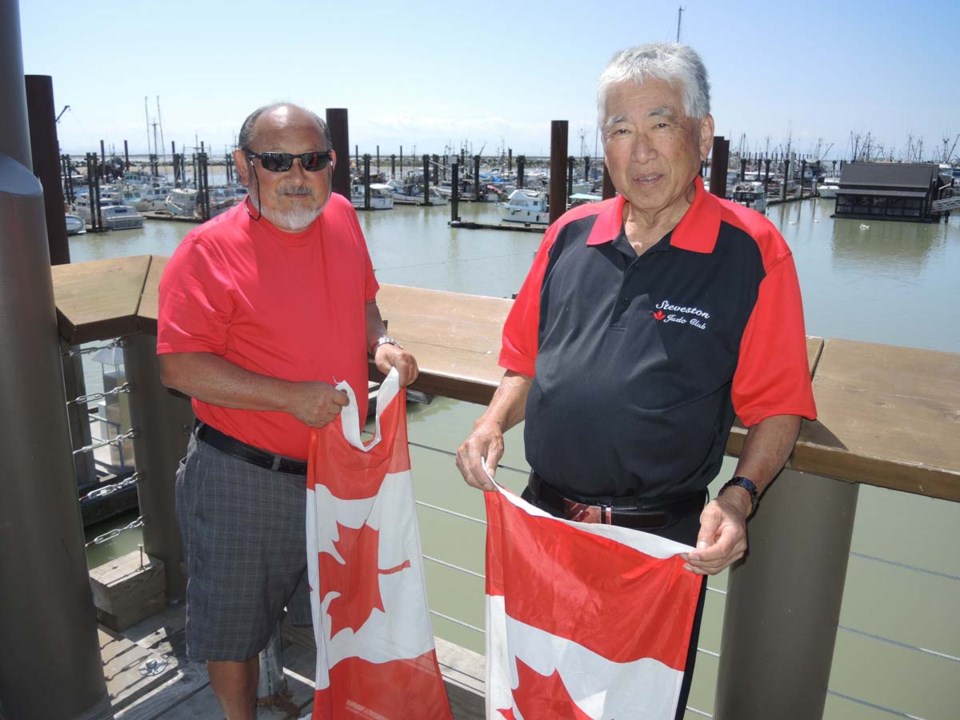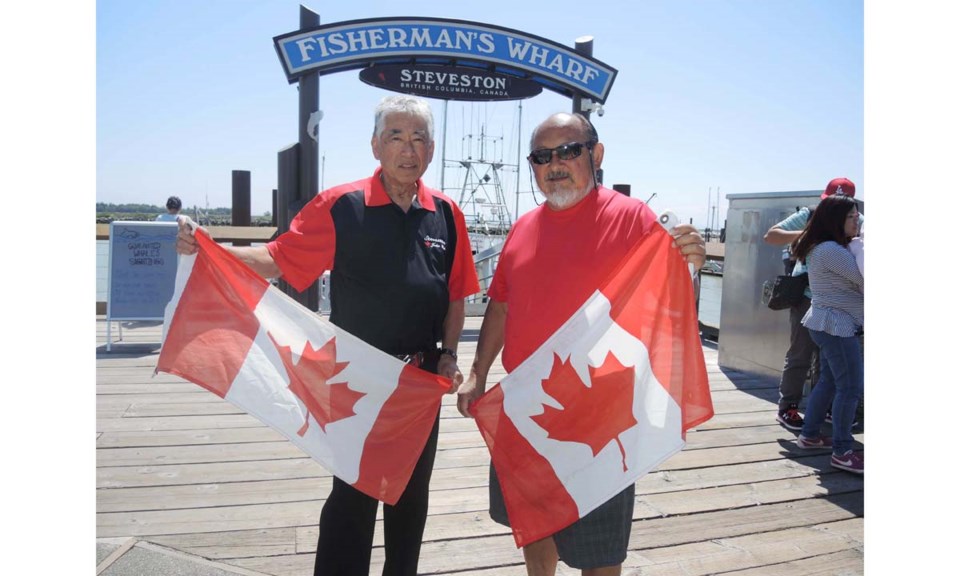When they got the call to ask if they wanted to be the honorary parade marshals for the Salmon Festival, Roy Matsuyama and Martin Kuramoto assumed it was a wind up.
After all, despite serving their home village of Steveston with distinction for most of their lives, the very modest pair doesn’t consider themselves important enough to be bestowed with such an honour.
And, even though they’re 66 and 81-years-old respectively, neither Matsuyama nor Kuramoto think they’re mature enough to be leading the parade.
“I got a phone call from one of the (festival) directors and he said ‘I’ve got some news for you.’ I said, ‘really, you couldn’t find someone else?’” said Matsuyama, a former Steveston Community Centre area coordinator, volunteer and current member of the Richmond Nikkei Memorial public art project committee.
“I said to the guy, ‘Don’t you usually have to be very old to do this?’ Then I looked at myself and realized…that’s me.”
Kuramoto, who has been involved with the festival through his Steveston Judo Club for 66 years, had a similar reaction when asked to be a parade marshal, before turning to his pal Matsuyama and saying, “I guess we are the senior guys now.”
It’s understood to be the first time in living memory the parade will have two marshals, with festival organizers wanting to connect with the opening of the Richmond Nikkei Memorial project, which symbolizes the internment of the Japanese community in Steveston, many of whom were born locally.
Both of this year’s parade marshals, and their families, were affected to varying degrees by the Second World War internment.
Significantly, however, neither will be carrying any emotional or historical baggage from the past when they lead the parade on July 1.
“I was only three (when interned),” said Kuramoto, who was born at the Japanese Hospital in Steveston in 1938.
“Our parents shielded us from all of that. I didn’t suffer. I never went hungry and never felt any discrimination. I was too young, I guess, and I never heard anything from my parents; they kept any resentment away from us.”
Matsuyama echoed his fellow parade marshal, while noting the opening of the Nikkei Memorial last Saturday.
“It’s really important that people remember what happened,” he said.
“But our parents did a wonderful job sheltering us from that. My parents lost everything and had to start from scratch. The only way they could do that was to move forward in a positive way.
“I’m sure there was a lot of resentment in their minds, but they kept it to themselves. And I think we were in a better place because of that.”

The Steveston born and bred pair, however, said they very much consider themselves to be Canadians first and foremost.
“I’ve been involved with (the festival) for, like, ever. I was hired in 1972 as the first recreation leader (at the community centre),” said Matsuyama. “Throughout the many years, we worked hand in hand with the festival committee. We initiated the first volunteer pancake breakfast and the first Bullhead Derby in Steveston, along with many other activities.
“I helped during the building of the new community centre and the Japanese Canadian Cultural Centre. Steveston has always been important to us and, as a child, I grew up here, this was my backyard.”
Although never physically in the parade in all the decades he’s provided festival entertainment, Kuramoto has always made himself available for the setup and takedown at the event.
“We have helped put it on for many years, but never taken part. Now we are leading it,” laughed Kuramoto.
Noting he and Kuramoto have known each other for 46 years, Matsuyama said the two of them leading the parade “will be an honour. It’s very humbling.”



